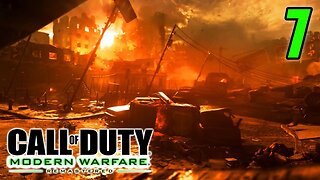Classics of Russian Literature | Mikhail Aleksandrovich Sholokhov, 1905–1984 (Lecture 29)
Lecture 29: Sholokhov’s best work goes along lines very different from what we have seen in Gorky and Maiakovsky. If to them, the revolution represented something highly desired and necessary, Sholokhov saw it as a tragic force that wiped out a whole community—the Cossacks— who were very dear and close to him. It was entirely natural that these people, with their vigorous and colorful (albeit crude) culture, who had occupied a privileged position for three centuries under the tsars, formed the most active and militarily effective resistance to the establishment of a new revolutionary regime. In the first part of And Quiet Flows the Don, Sholokhov gives a vivid picture of pre-World War I Cossack life, with its rich farms, love of horses, lust for women, and a military tradition that habitually struck terror in the hearts of all enemies, foreign and domestic, of the tsar. Seen largely through the eyes of a decent man, Gregor Melekhov, Cossack life and lands appear in all their glory and all their defects.
Suggested Reading:
C. G. Bearne, Sholokhov.
Mikhail Sholokhov, And Quiet Flows the Don, translated by Stephen Garry.
-
 1:52:18
1:52:18
2 MIKES LIVE
5 hours ago2 MIKES LIVE #78 OPEN MIKE FRIDAY!
19.1K4 -
 1:01:10
1:01:10
Talk Nerdy 2 Us
3 hours agoConspiracy or Reality? Unpacking Today's Most Controversial Debates on 'Talk Nerdy 2 Us
21.7K2 -
 2:11:43
2:11:43
Revenge of the Cis
7 hours agoEpisode 1358: Home Sweet Home
55.1K18 -
 2:19:17
2:19:17
WeAreChange
8 hours agoJONES CASE Exposed As Deep State OP To Snatch Americans' Social Media Accounts?!
63.7K34 -
 8:55
8:55
Evenout
5 hours agoLosing 20 Pounds in One Workout Twin Switch-Up Prank!
25.3K1 -
 1:19:52
1:19:52
Tactical Advisor
11 hours agoNEW Vault Room Wall - Vault Room Live Stream
80.2K8 -
 30:39
30:39
Degenerate Plays
6 hours agoI'm Sorry Paul Jackson, California's For Real - Call Of Duty Modern Warfare Remastered : Part 7
35.5K2 -
 28:09
28:09
Stephen Gardner
6 hours ago🔴Biden BLAMING Trump for This is RIDICULOUS!!
44.8K29 -
 1:03:53
1:03:53
In The Litter Box w/ Jewels & Catturd
1 day agoHappy Birthday President Trump! | In the Litter Box w/ Jewels & Catturd - Ep. 587 - 6/14/2024
79.1K56 -
 1:05:31
1:05:31
Hometalk
7 hours agoStick a wire basket into a tomato cage for this BRILLIANT porch idea!
40.8K